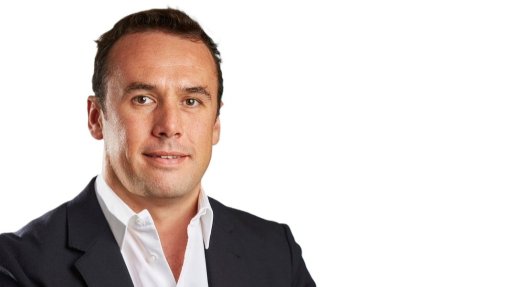Why SA needs energy reform now


Andrew Taylor, co-founder and Head of Trading at South African renewable energy IPP and trader NOA,
This article has been supplied.
By Andrew Taylor:
Energy reform is no longer a theoretical debate. With the mounting threats on South Africa’s commercial and industrial energy users, it is a matter of national competitiveness, industrial growth and social stability. Andrew Taylor, co-founder and Head of Trading at South African renewable energy IPP and trader NOA, shares his thoughts on why energy reform is critical.
Without reliable and affordable electricity, industries reduce output, jobs are lost and investment flows elsewhere. Energy security underpins every other development priority, from healthcare and education to digital infrastructure and industrialisation. The long-standing model of centralised generation and supply arrangements is no longer adequate to deliver the reliable and affordable power needed for growth. An exciting outcome of the liberalisation journey is that end users will be active participants, able to select energy providers themselves, where bespoke energy supply solutions are tailored to their needs.
With the anticipated launch of the South African Wholesale Electricity Market (SAWEM) in April 2026, the country has an opportunity to build a modern, transparent and competitive electricity system that can serve as the foundation for economic renewal.
Why Reform is Essential
Recent legislative interventions, such as the promulgation of the Electricity Regulation Amendment Act, the Market Code and the Regulatory Rules on Network Charges for Third Party Wheeling of Energy mark a sharp departure from a system defined by limited competition, regulatory uncertainty and infrastructure bottlenecks.
Customers have largely been passive recipients of power with little control over the source, price or reliability of their supply. Independent Power Producers (IPPs) have added capacity, but our economy requires the pace of investment and reform to increase to underpin higher economic growth and deliver on the nationally determined decarbonisation objectives.
The SAWEM, in particular, changes the rules. It introduces competition in a transparent wholesale platform where market participants, such as generators, traders and large power users can buy and sell electricity. Customers become active participants rather than passive consumers. They will need to forecast demand and, in certain circumstances, take responsibility for balancing.
Advanced forecasting, real-time metering and telemetry, transparent contracts and credit arrangements all become essential components of a modern market participant’s toolkit.
But the wholesale market is only one piece of the puzzle – grid expansion is equally urgent. Without stronger transmission and distribution networks, new capacity cannot reach the people and industries that need it most. Reform must therefore be whole-of-system, requiring coordination between Eskom, the National Transmission Company of South Africa, regulators, municipalities, private sector players, investors and civil society.
The Energy Council of South Africa has placed reform at the centre of its agenda. Through initiatives such as Energy Data and Modelling South Africa, Energise Mzansi and engagement with the World Energy Council, the sector is building the intellectual and collaborative foundation for success. SAWEM will be a milestone in this broader journey, but it will only deliver its full potential if supported by investment in grid infrastructure, policy certainty and institutional capacity.
The Role of Aggregators and Traders
For customers, the new electricity wholesale market will likely feel overwhelming – the terminology is unfamiliar and the processes are complex. Credible traders and aggregators have a vital role to play as the bridge between IPP’s and end users.
This is the space where NOA shines by absorbing complexity so that customers do not have to. Our portfolio approach combines our own generation assets with those of trusted IPP partners, balancing risk through technology diversity and geographic spread, to reduce volatility. Our investment in forecasting, data science and energy storage equips us to handle the balancing responsibility that SAWEM requires. This allows our customers to focus on their core business, while advancing towards renewable energy targets with confidence.
Reform represents an opportunity for leadership. South Africa can use SAWEM to create a credible and certain environment for investment, a system where capital flows into new projects and industries allowing them to gain a competitive edge through reliable and affordable electricity.
“The reforms we are seeing are about shaping the future, not only about fixing the present. South Africa has the chance to build an electricity market that is credible, flexible and world class. We cannot afford to hesitate,” says Taylor of the potential benefits of a fully reformed electricity market.
Energy reform is one of the most important economic reforms that South Africa can undertake in this decade. With reform, the country can unlock new capacity, attract investment and secure a sustainable energy future.
With a strategic approach to energy trading, Andrew ensures that NOA's trading activities deliver on their promise of decarbonisation
and cost savings, generating value for all stakeholders.
Article Enquiry
Email Article
Save Article
Feedback
To advertise email advertising@creamermedia.co.za or click here
Press Office
Announcements
What's On
Subscribe to improve your user experience...
Option 1 (equivalent of R125 a month):
Receive a weekly copy of Creamer Media's Engineering News & Mining Weekly magazine
(print copy for those in South Africa and e-magazine for those outside of South Africa)
Receive daily email newsletters
Access to full search results
Access archive of magazine back copies
Access to Projects in Progress
Access to ONE Research Report of your choice in PDF format
Option 2 (equivalent of R375 a month):
All benefits from Option 1
PLUS
Access to Creamer Media's Research Channel Africa for ALL Research Reports, in PDF format, on various industrial and mining sectors
including Electricity; Water; Energy Transition; Hydrogen; Roads, Rail and Ports; Coal; Gold; Platinum; Battery Metals; etc.
Already a subscriber?
Forgotten your password?
Receive weekly copy of Creamer Media's Engineering News & Mining Weekly magazine (print copy for those in South Africa and e-magazine for those outside of South Africa)
➕
Recieve daily email newsletters
➕
Access to full search results
➕
Access archive of magazine back copies
➕
Access to Projects in Progress
➕
Access to ONE Research Report of your choice in PDF format
RESEARCH CHANNEL AFRICA
R4500 (equivalent of R375 a month)
SUBSCRIBEAll benefits from Option 1
➕
Access to Creamer Media's Research Channel Africa for ALL Research Reports on various industrial and mining sectors, in PDF format, including on:
Electricity
➕
Water
➕
Energy Transition
➕
Hydrogen
➕
Roads, Rail and Ports
➕
Coal
➕
Gold
➕
Platinum
➕
Battery Metals
➕
etc.
Receive all benefits from Option 1 or Option 2 delivered to numerous people at your company
➕
Multiple User names and Passwords for simultaneous log-ins
➕
Intranet integration access to all in your organisation



















